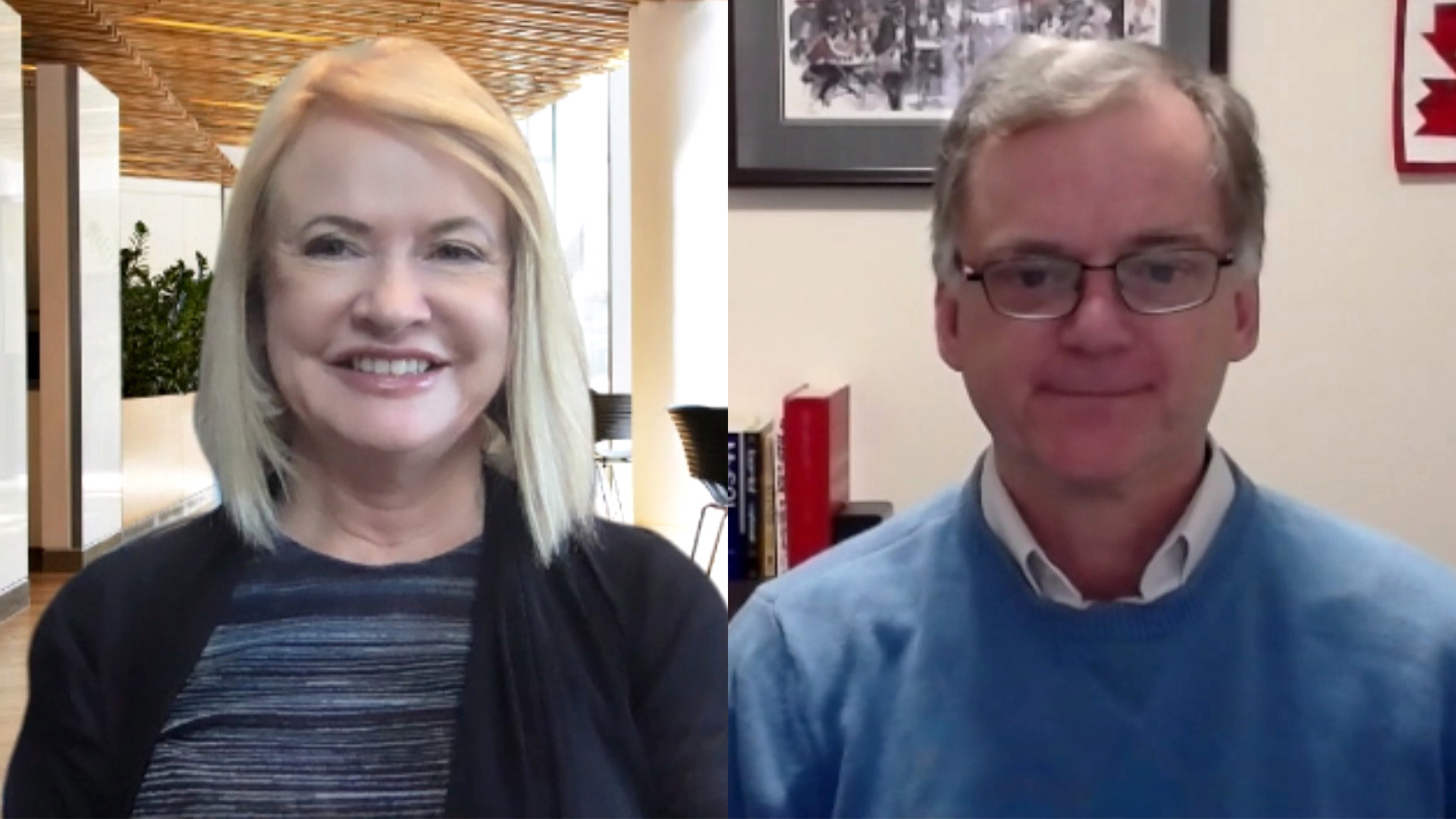 SECURITY
SECURITY
 SECURITY
SECURITY
 SECURITY
SECURITY
Just as digital transactions and the distributed workforce grew significantly during the COVID-19 pandemic, cyberattacks also gained ground. And this exacerbated an existing problem: the cybersecurity skills gap.
It has been increasingly difficult for enterprises to find and train enough professionals to answer the needs of global business under an ever-growing threat of cyberattacks, according to Sandra Wheatley (pictured, left), senior vice president of marketing, threat intelligence and influencer communications at cybersecurity company Fortinet Inc.
“It was estimated that we would need 4 million professionals coming into the industry to close the gap,” she said. “We are now at probably a little bit over 3 million, so there is progress being made but we still have a long way to go.”
Wheatley and Rob Rashotte (pictured, right), VP of global training and technical field enablement at Fortinet, spoke with Lisa Martin, host of theCUBE, SiliconANGLE Media’s livestreaming studio, for a digital CUBE Conversation. They discussed the cybersecurity skills gap issue and how it impacts organizations, the need for training and partnerships to address it, and Fortinet’s initiatives against the cyber talent shortage. (* Disclosure below.)
Solving the cybersecurity skills gap issue is the responsibility of both schools, which should expand the curriculum to train more talent, and the private sector, which should broaden the scope of hiring beyond people with technical degree, according to Wheatley.
Fortinet is tackling this issue on multiple fronts. In addition to providing the traditional training for engineering schools, the company has also started working with MBA programs “so that business leaders can start to understand the need to be addressing cybersecurity in the boardroom, for example, not just within the IT department,” Rashotte said.
Fortinet has also strengthened global partnerships with enterprises, such as Salesforce and IBM.
“With Salesforce we provide some of our curriculum and training for free on their training platform; the same with IBM,” Wheatley explained. “And we’ll continue to scale these partnerships because with these partners, we can reach more people and accelerate the impact that we can have overall.”
On another front, Fortinet has also decided to provide free cybersecurity training to people in general, which is part of its Training Advancement Agenda.
“We made the conscious decision that the training curriculum that we’ve built, we wanted to make it available to as many people as we possibly could,” Rashotte said. “So, we’ve made approximately 400 hours of cybersecurity training available to anyone that wants to sign up and take the training in self-paced format, where they want to take it, when they want to take it.”
Fortinet’s commitment is that the training will continue to be free until the skills gap begins to close. And the demand has been great — in less than a year, registrations exceeded more than a million.
There is a misconception in the tech area that a degree in computer science or some other technical area is required to work in cybersecurity, and that is not the case, according to Wheatley.
“In fact, half the people in cybersecurity don’t have a degree in any computer science program, etc.,” she said. “There’s a lot of skillsets and backgrounds that really map well to cybersecurity.”
This comes from the fact that cybersecurity is a very broad industry, with new roles popping up all the time. For example, Fortinet has a program to train veterans that has been extremely successful, according to Wheatley.
“People coming out of the defense forces have a lot of the skills that match very well to cybersecurity, like attention to detail, situational awareness [and] the ability to work under pressure,” she said.
Encouraging other backgrounds is a way to also promote more creativity and diversity in the sector.
“The lack of diversity in IT has been a challenge for everyone, and the issue in cybersecurity is just a manifestation of that,” Wheatley stated. “One of the reasons is that, particularly in cybersecurity, a lot of people don’t understand how to get into the industry or they have a lack of awareness about the different types of roles.”
Watch the complete video interview below, and be sure to check out more of SiliconANGLE’s and theCUBE’s coverage. (* Disclosure: This segment was sponsored by Fortinet Inc. Neither Fortinet nor other sponsors have editorial control over content on theCUBE or SiliconANGLE.)